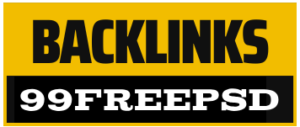As educational technology (EdTech) continues to evolve, higher education institutions face both immense opportunities and unique challenges in harnessing its full potential. Implementing sophisticated EdTech solutions can transform teaching and learning experiences, but achieving meaningful outcomes requires more than just adopting the latest tools—it demands a strategic, tailored approach. This is where higher education consulting services play a pivotal role. By offering expert guidance and customized strategies, consultants help institutions maximize the learning impact of their EdTech investments.
1. Navigating the Complex EdTech Landscape
The EdTech market is rapidly expanding, with new tools and platforms emerging regularly. From adaptive learning systems and AI-driven analytics to virtual classrooms, the choices are vast and overwhelming. Higher Ed consultants specialize in analyzing the latest EdTech trends and identifying the best-fit technologies for specific institutional needs.
2. Aligning Technology with Institutional Goals
For EdTech to be effective, it must align with the broader objectives of the institution, whether that’s enhancing student engagement, improving retention rates, or supporting faculty development. Consultants assess institutional goals and ensure technology investments are strategically positioned to support these aims.
3. Facilitating Seamless Integration and Adoption
Integrating new technology into existing systems and workflows is often one of the biggest challenges institutions face. Consultants manage this transition, coordinating with IT teams, faculty, and administrative staff to create a seamless experience. They provide guidance on everything from compatibility checks to user training.
4. Enhancing Accessibility and Inclusivity
Creating an inclusive learning environment is essential in higher education. Consultants help institutions evaluate EdTech solutions for accessibility, ensuring compliance with standards and expanding access for students with diverse needs. From screen reader compatibility to customizable learning environments, consultants prioritize inclusive design.
5. Measuring Impact and Continuous Improvement
One critical role of higher education consultants is implementing systems to measure the impact of EdTech initiatives. Consultants provide insights into how technology affects learning outcomes, faculty effectiveness, and student satisfaction through data analysis and feedback loops. They also recommend adjustments to optimize performance.
https://academian.com/services/
Maximizing Learning Impact: How Higher Ed Consulting Enhances EdTech Solutions
